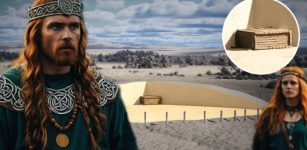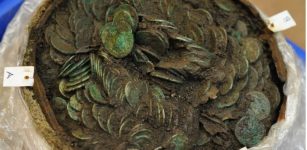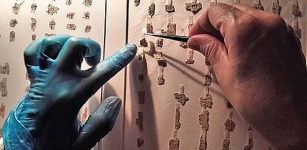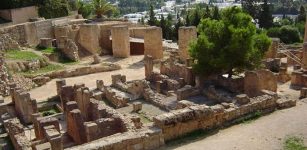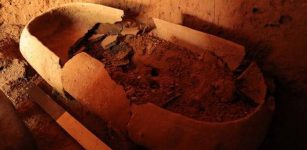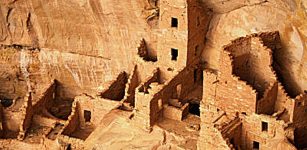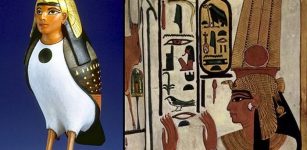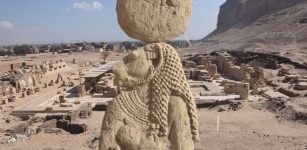Unique More Than 1,600-Year-Old Board Game With Pieces Recovered From Roman Soldier’s Tomb
AncientPages.com - An ancient wooden board game discovered in the 1,600-year-old tomb of a Germanic prince, is a unique archaeological treasure.
According to experts the board game is a unique artifact that has no parallel in Slovakia and Europe as well.
The game, over 1,600 years old, consists of chess-like squares with green and white playing pieces of different sizes that have also been preserved, reports The Slovak Spectator.
An analysis of the playing pieces revealed that it is ancient glass from the east Mediterranean, probably from Syria.
“It’s the best preserved ancient wooden board game that has been found to the north of the Mediterranean Sea. Together with Roman glass playing pieces it was apparently a prestigious object that documented contacts of the dead with the Roman world,” said Ulrich Schädler, director of the Museum of Games located near Lake Geneva in Switzerland.
See also:
Royal Game Of Ur – One Of The Oldest Game Boards Discovered
Ancient Egyptian Toys And Games In Focus
Hnefatafl: Ancient Viking Board Game “King’s Table” Popular In Medieval Scandinavia
Games of this type were found in Greek and Roman temples on the floors or in the streets of ancient towns, carved into stone pavement. This portable wooden board game from Poprad is unique.
“There were plenty of board games in ancient times with many variants, but reconstructing the playing technique is a very complicated process that only top experts can solve,” said Karol Pieta of the Archaeological Institute in Nitra, who leads the research on the ancient tomb in Poprad.
Pieta said that “the game was apparently brought from the territory of the Roman empire to under the Tatras.”
Found in a tomb dated to 375 AD, the game could belong to about 30 years old, Roman army soldier, who stayed in the Mediterranean for some time but born in the area where he was also buried.
“It’s highly probable that he served in the Roman army as a prominent officer that corresponded with his social status. He was strongly influenced by the developed ancient culture, as demonstrated by his favorite game being placed in his tomb,” said Pieta.
Original story – here.
AncientPages.com




